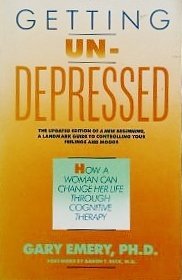How does exercise alleviate symptoms of depression?
Depression is a common mental health condition that affects millions of people worldwide. It can cause persistent feelings of sadness, hopelessness, guilt, and loss of interest in activities that used to bring joy. Depression can also interfere with daily functioning, such as work, school, relationships, and self-care.
While there are many effective treatments for depression, such as medication, psychotherapy, and lifestyle changes, one of the most accessible and natural ways to cope with depression is exercise. Exercise is not only good for your physical health, but also for your mental well-being. In this blog post, we will explore how exercise can help alleviate some of the symptoms of depression and improve your mood.

Exercise and the brain
Exercise has been shown to have positive effects on the brain, especially on the regions that are involved in mood regulation, such as the hippocampus, amygdala, and prefrontal cortex. Exercise can stimulate the growth of new nerve cells and connections in these areas, which can enhance their function and resilience. Exercise can also increase the levels of neurotransmitters, such as serotonin, dopamine, and norepinephrine, which are responsible for regulating mood, motivation, and reward. Additionally, exercise can reduce the levels of stress hormones, such as cortisol and adrenaline, which can exacerbate depression.
Exercise and the mind
Exercise can also help with depression by providing psychological benefits. Exercise can distract you from negative thoughts and worries that fuel depression. It can also give you a sense of accomplishment, mastery, and self-efficacy, which can boost your self-esteem and confidence. Exercise can also enhance your social support network by providing opportunities to interact with others who share your interests and goals. Furthermore, exercise can improve your sleep quality and quantity, which can have a significant impact on your mood and energy levels.
How much exercise do you need?
According to the Canadian Physical Activity Guidelines for Adults 18-64 years, you should aim for at least 150 minutes of moderate- to vigorous-intensity aerobic physical activity per week, in bouts of 10 minutes or more. This means that you should exercise at a level that makes you breathe harder and sweat a little. You should also do muscle- and bone-strengthening activities using major muscle groups at least twice per week.
However, you don’t have to start with this amount of exercise right away. You can start with small steps and gradually increase the frequency, intensity, and duration of your exercise sessions. The most important thing is to find an activity that you enjoy and that suits your abilities and preferences. You can choose from a variety of options, such as walking, jogging, cycling, swimming, dancing, yoga, or team sports. You can also try different settings, such as indoors or outdoors, alone or with others, or at home or at a gym.

Tips for sticking with exercise
While exercise can be beneficial for depression, it can also be challenging to start and maintain an exercise routine when you are feeling low. Here are some tips to help you overcome some of the common barriers to exercise:
- Set realistic and specific goals. For example, instead of saying “I will exercise more”, say “I will walk for 20 minutes three times a week”.
- Track your progress. Use a journal, an app, or a calendar to record your exercise sessions and celebrate your achievements.
- Reward yourself. Give yourself a treat or a compliment when you reach your goals or milestones.
- Be flexible. If you miss a session or have a bad day, don’t give up or beat yourself up. Just resume your routine as soon as possible.
- Seek support. Ask a friend, family member, or co-worker to join you in your exercise activities or to encourage you along the way.
- Be kind to yourself. Remember that exercise is not a cure-all or a punishment for depression. It is a tool to help you cope better and feel better.
Summary
Exercise is an effective and natural way to help alleviate some of the symptoms of depression. It can improve your brain function, mood regulation, stress management, self-esteem, social support, and sleep quality. However, exercise is not a substitute for professional help. If you are struggling with depression, you should consult your doctor or a mental health professional for diagnosis and treatment options. Exercise can be a complementary strategy to enhance your recovery and well-being.
Another Technique | The Cognitive Approach
Dr. Gary Emery | Getting Un-Depressed | Cognitive Therapy – Highly recommended – Available on Amazon – Rated 5 Stars – Click on the image below. I highly recommend it. (As an Amazon Associate I earn from qualifying purchases.)
Cognitive therapy, as outlined in Dr. Emery’s book, very simply stated, is replacing negative thoughts with thoughts that are positive, thoughts that make you feel good such as a pleasant memory from the past. Like any exercise, this technique requires some effort, however, and may take a little time before results are obtained. Here’s the link to a short post on this subject I did awhile back. The title of that post was “Guard Your Mind”.
The first step, of course, is to become conscious of your thought patterns. Once you become aware or mindful of what you are thinking about most of the time, adjustments can be made if necessary. Certainly, if you discover that negative, self-defeating thoughts dominate your mind, immediate steps should be taken to implement those adjustments.
Finally, do your best to concentrate on the present moment. Thoughts that flow from sad memories from the past do not serve us. Similarly, thoughts that are focused on what might happen to us next week, next month or next year are not productive and can lead to anxiety.
“Forget the former things; do not dwell on the past.” (Isaiah 43:18 NIV) Why is teaching from the Bible against us dwelling on the past? Because doing so can cause us to get stuck where we are. When our focus is on the past, it’s too easy for us to feel sorry for ourselves.
“So do not worry or be anxious about tomorrow, for tomorrow will have worries and anxieties of its own. Sufficient for each day is its own trouble.” Matthew 6:34
A German author, Eckhart Tolle, wrote a best-selling book on the power of living in the present moment. It is another book I highly recommend. Available on Amazon. Click on the image below. (As an Amazon Associate I earn from qualifying purchases.)
I hope you will derive some benefit from this content. The path that leads to depression can be short-circuited if intercepted early on. Exercise, control of one’s thought patterns and dwelling on the present moment are but three techniques that can be helpful. In cases where depression has become chronic intervention by a skilled therapist is often necessary.

Grant Rayner
If you have questions or comments I would invite you to leave your remarks in the comment section below. Finally, if you would like to be notified when updates are made to the content here at BetterHealthBetterYou enter your first name and best email in the form below.

